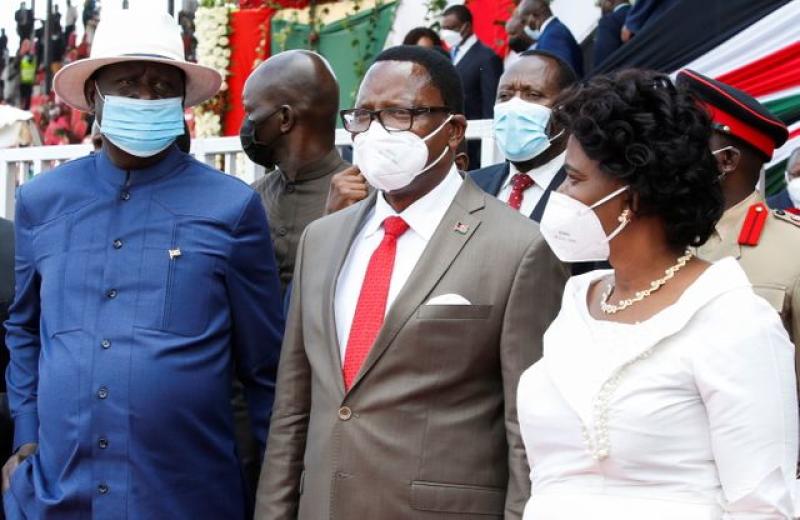×
The Standard e-Paper
Join Thousands Daily

Kenya's former Prime Minister Raila Odinga stands with Malawi's President Lazarus Chakwera and his wife Monica after attending the Mashujaa Day (Hero's Day) celebrationsat the Wang'uru stadium in Mwea, Kirinyaga County, Kenya October 20, 2021. [Reuters, Monicah Mwangi]
Malawian President Lazurus Chakwera has described celebrating Mashujaa Day in Kenya an ideal way to share history of both nations that have a lot in common.